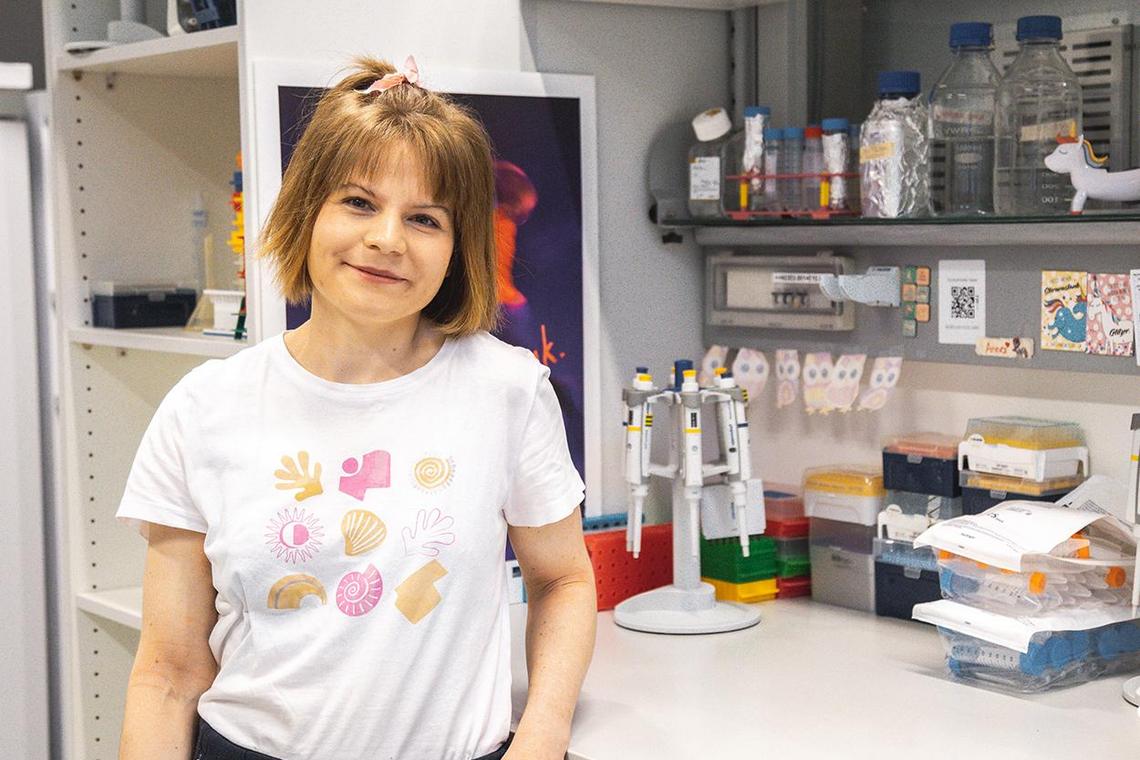Press
Leading researcher: biotech specialist from IMC Krems

With Medical and Pharmaceutical Biotechnology bachelor and master degrees from IMC Krems already to her name, Anna Stierschneider graduated from the Regenerative Medicine PhD programme at the University for Continuing Education Krems (UWK) in April 2023. Her supervisors were Prof. Viktoria Weber (Vice-Rector for Research, UWK), Prof. Michael Fischer (PhD coordinator, UWK) and Prof. Christoph Wiesner (Institute of Biotechnology, IMC Krems).
Optogenetics: Shedding light into the molecular and regulatory mechansims of TLR4 signaling in inflammation and cancer
For her PhD, Stierschneider published two peer reviewed papers as lead author, one released in the International Journal of Molecular Sciences with an impact factor of 6.2, and one in the journal Cells, which had an impact factor of 7.66. Her research aimed at clarifying the molecular and regulatory mechanisms behind TLR4 signaling in inflammation and cancer. Therefore, she developed optogenetically manipulated cell lines that enable spatiotemporal precise and reversible photoactivation of TLR4.
Optogenetics is probably one of the most innovative techniques found in the toolbox of science. The mix of optical technologies and genetics allows researchers, to control the activity of targeted receptors in human cells with extreme precision. More specifically, light-sensitive protein domains isolated from plants or microbes are incorporated into the receptors under study. This allows them to be switched on or off by light stimuli.
“With this novel technology we want to examine which messenger substances are active in inflammation and cancer,” Stierschneider explains. We find a comparable principle in the plant world: Here, plants react to light and grow only when they are irradiated by the sun. In the current research project, the researchers have focused on the TLR4, which is upregulated in septic and pancreatic cancer patients and thus strongly drives the development, progression and aggressiveness of these diseases. To study the receptor with spatiotemporal precision and to generate novel tools to for high content screening (HCS) of active agents that block TLR4 signaling, the so-called light-oxygen-voltage (LOV) domain, which was isolated from the yellow-green algae was fused to this receptor. The newly generated cell lines now allow a fast, dosage-dependent, spatiotemporal precise, and reversible photoactivation of the TLR4.
Outstanding potential
Anna Stierschneider’s research has made a vital contribution to explaining TLR4 signaling in inflammation and cancer and provides a novel way to discover new anti-inflammatory and anti-cancerous drugs. As a project team member in the Department of Life Sciences at IMC Krems, Stierschneider’s outstanding research earned her the tecnet accent Innovation Award in 2021, and in May 2023 she won the Science Award at IMC Krems. Born in the Wachau region, the 31-year-old is one of the leading young researchers in Lower Austria.
